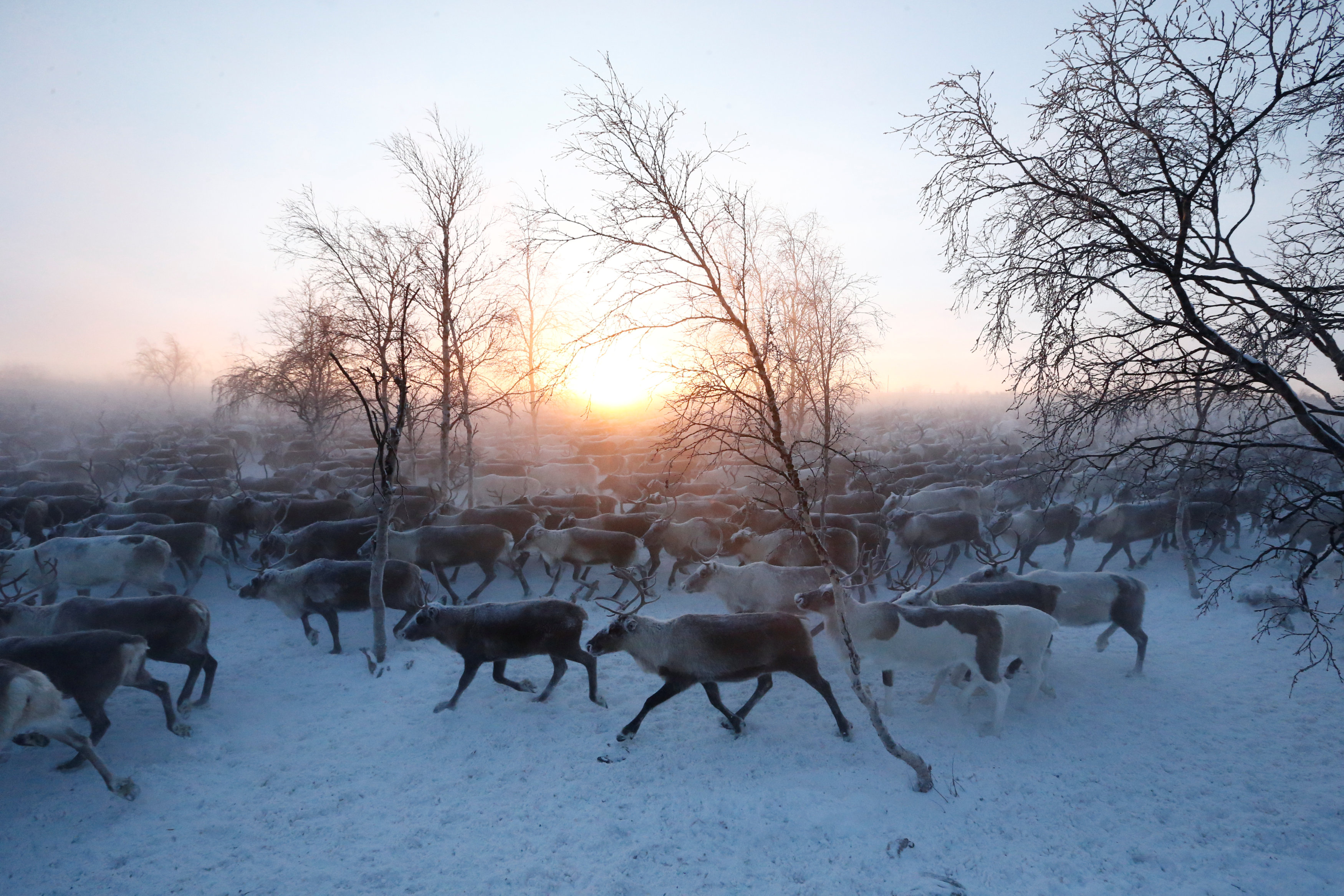
By Sergei Karpukhin
KRASNOYE, Russia (Reuters) – In Russia’s remote Arctic regions, reindeer herding has been a way of life for centuries.
Each winter, herders in Russia’s sparsely populated Nenets Autonomous District corral their reindeer into open-air pens before selecting weak animals to be culled.
The cull helps preserve the region’s fragile tundra by keeping herd sizes down, and local people sell reindeer meat, hide and antlers to make a living.
Igor Ledkov, who works at the Harp agricultural cooperative in the village of Krasnoye, said herders try to maintain the local reindeer population at around 15,000-17,000 animals.
“The size of the cull each year varies, this year we plan to cull more than 3,000 reindeer,” Ledkov said.
“We wait until there’s enough snow on the ground so the reindeer don’t trample the best grazing land when we corral them into the pens.”
Krasnoye is the only settlement in the Nenets region connected by road to the regional capital, Naryan-Mar, which is over 2,000 kilometers north of Moscow.
Temperatures can sink below minus 40 degrees Celsius in winter.
At the Harp cooperative, the reindeer have their antlers removed before the weaker specimens are taken to the slaughter house.
Herders saw off antlers from even the stronger animals as they are valuable and fall off by themselves if left to grow. Reindeer hides are salted to preserve them before being sold for export to countries including Finland.
Herders receive a subsidy of 130 rubles ($2.08) for each kilogram of reindeer meat they send to be processed, according to the local government, as well as monthly social support payments.
The meat subsidy is to be cut by around 40 percent next year as weak oil prices have hurt the Nenets region budget, which depends on oil for 98 percent of revenues.
(Writing by Alexander Winning, editing by Ed Osmond)
Copyright 2015 Thomson Reuters. Click for Restrictions.


